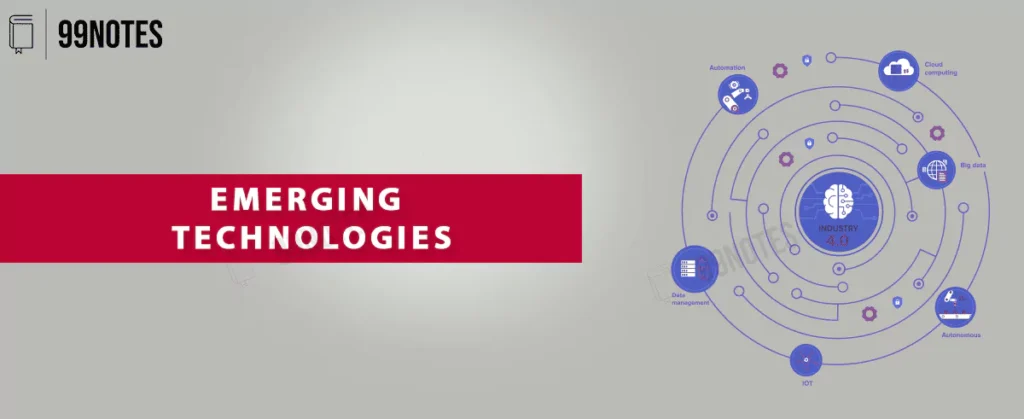
Emerging Technologies Free UPSC Notes Download
Emerging Technologies
Here are some emerging technologies that you may want to familiarize yourself with as you prepare for the UPSC CSE exam:
- Artificial intelligence: Artificial intelligence (AI) refers to the development of computer systems that can perform tasks that normally require human intelligence, such as learning, problem-solving, and decision-making. There are several types of AI, including narrow or weak AI, which is designed to perform a specific task, and general or strong AI, which has the ability to perform a wide range of tasks. AI has a wide range of applications, including language translation, image and speech recognition, and self-driving cars.
- Internet of Things: The Internet of Things (IoT) refers to the interconnectedness of everyday objects, such as appliances, vehicles, and industrial equipment, through the internet. This allows for the collection and exchange of data, leading to improved efficiency and automation. For example, a smart thermostat can be programmed to adjust the temperature in a home based on the presence of people and the outside temperature, and a smart fridge can keep track of its contents and create a shopping list.
- Blockchain: Blockchain is a decentralized, digital ledger that records transactions across a network of computers. It is secure and transparent, making it useful for a variety of applications, including financial transactions, supply chain management, and voting systems. Transactions are recorded in blocks and linked together in a chain, and once a block is added to the chain, it cannot be altered. This makes blockchain technology resistant to fraud and tampering.
- Virtual and augmented reality: Virtual reality (VR) involves the use of computer-generated simulations to create immersive experiences, while augmented reality (AR) involves the overlay of digital information onto the physical world. These technologies have applications in gaming, education, and training, among others. VR can be used to create simulated environments for education or training purposes, while AR can be used to enhance the real world with additional information, such as in navigation apps or museum exhibits.
- Quantum computing: Quantum computers use principles of quantum mechanics to perform calculations at a much faster rate than traditional computers. They have the potential to solve complex problems that are beyond the capabilities of classical computers, such as drug discovery and optimization of financial portfolios. Quantum computers use quantum bits, or qubits, to store and process information, and they can perform multiple calculations simultaneously, a process known as parallelism.
- Biotechnology: Biotechnology involves the use of living organisms or their products for the development of products or processes. It has a wide range of applications, including agriculture, medicine, and environmental management. For example, genetically modified crops can be developed to be more resistant to pests and diseases, and biotechnology can be used to produce drugs and other medical treatments.
Advanced materials: Advanced materials are materials with enhanced properties, such as strength, conductivity, or durability, that are developed through advanced manufacturing techniques. They have applications in various sectors, including construction, transportation, and electronics. For example, carbon fiber reinforced plastics are used in the construction of aircraft and sporting goods, and graphene, a material with high conductivity and strength, has potential applications in electronics and energy storage.
Other Topics Related to Science & Technology:

